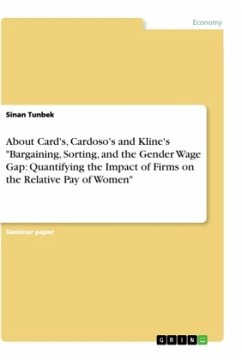Intermediate Examination Paper from the year 2013 in the subject Economics - Other, grade: 94/100, Donau-Universität Krems (Economics and Business Management), course: Social Innovation, language: English, abstract: In this review, I discuss the texts of Rothschild (2001), Stiglitz (2002), Judt (2010) and Bakker/Miller (1996) which deal with economic thinking in the broadest sense, and the role of market and state in particular. This review starts with the question what the intention of the different theoretical paradigms in economic thinking is. The three schools of economy, i.e. the neoclassical, Keynesian and political economy, follow diverse paradigms in order to explain the conditions under which markets work well and under which they do not. On the one hand, the three paradigms agree that the governments have a role in creating a framework for the economy. On the other hand, they disagree on the precise role of the state and the values that shape our opinion (see Stiglitz 2002: 219).
Hinweis: Dieser Artikel kann nur an eine deutsche Lieferadresse ausgeliefert werden.
Hinweis: Dieser Artikel kann nur an eine deutsche Lieferadresse ausgeliefert werden.








